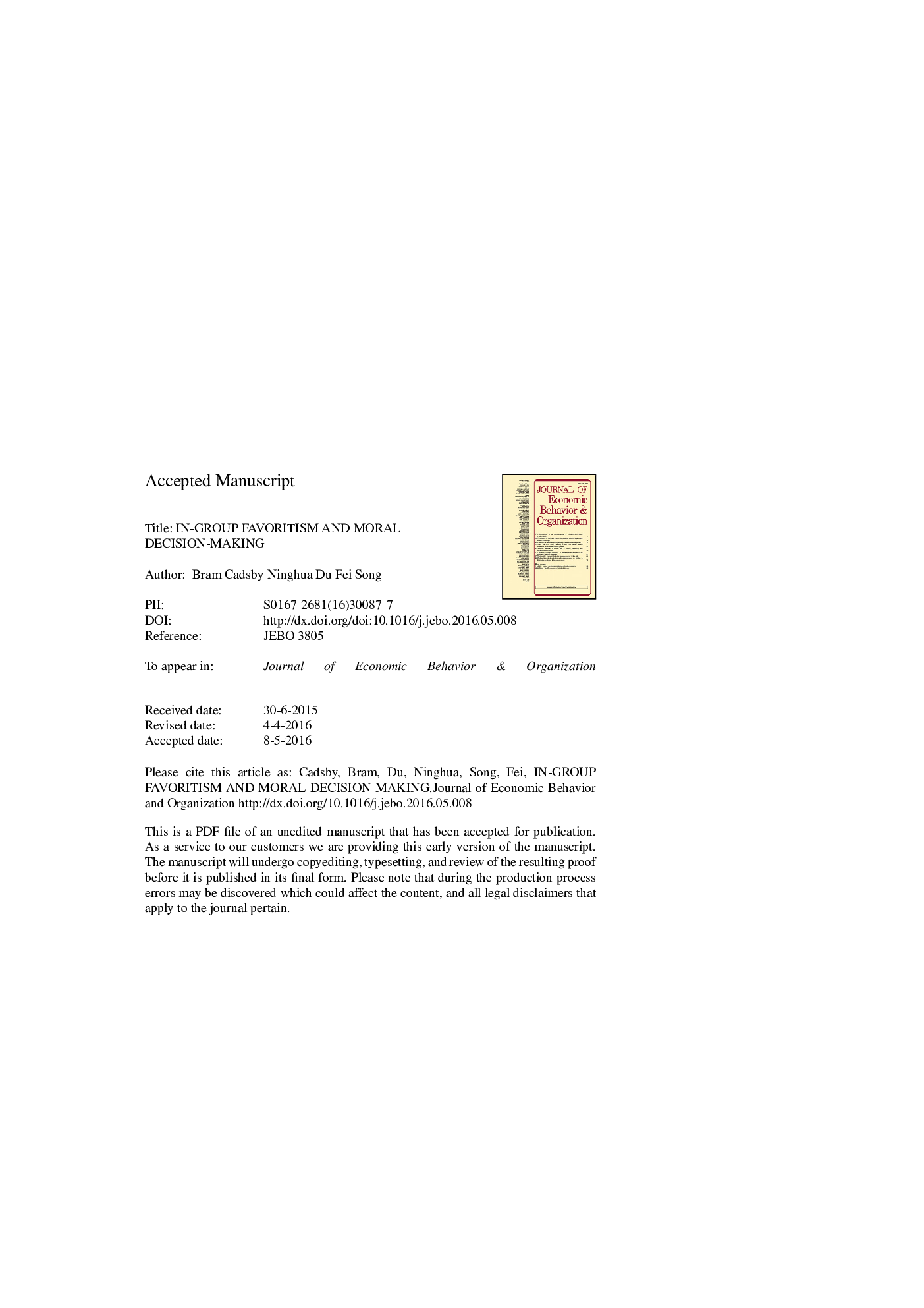| Article ID | Journal | Published Year | Pages | File Type |
|---|---|---|---|---|
| 7242775 | Journal of Economic Behavior & Organization | 2016 | 36 Pages |
Abstract
We present a controlled laboratory experiment to investigate whether and to what extent people will cheat on behalf of a member of their own in-group at the expense of a non-member. We investigate the impact of social/group identity on cheating by running a new variant of the die-under-cup methodology (Fischbacher and Föllmi-Heusi, 2013) that captures both the key features of in-group bias and cheating behavior. Specifically, we examine the following questions: Does moral concern curb people from cheating to benefit a member of their own in-group? Is the moral burden of cheating as strong a deterrent for such cheating for others as it is for purely selfish cheating? We find evidence of dishonesty to benefit not only oneself but also one's in-group. In particular, we find that some people lie to increase the payoff of an in-group member even though such a lie does not affect their own monetary payoff.
Related Topics
Social Sciences and Humanities
Economics, Econometrics and Finance
Economics and Econometrics
Authors
C. Bram Cadsby, Ninghua Du, Fei Song,
